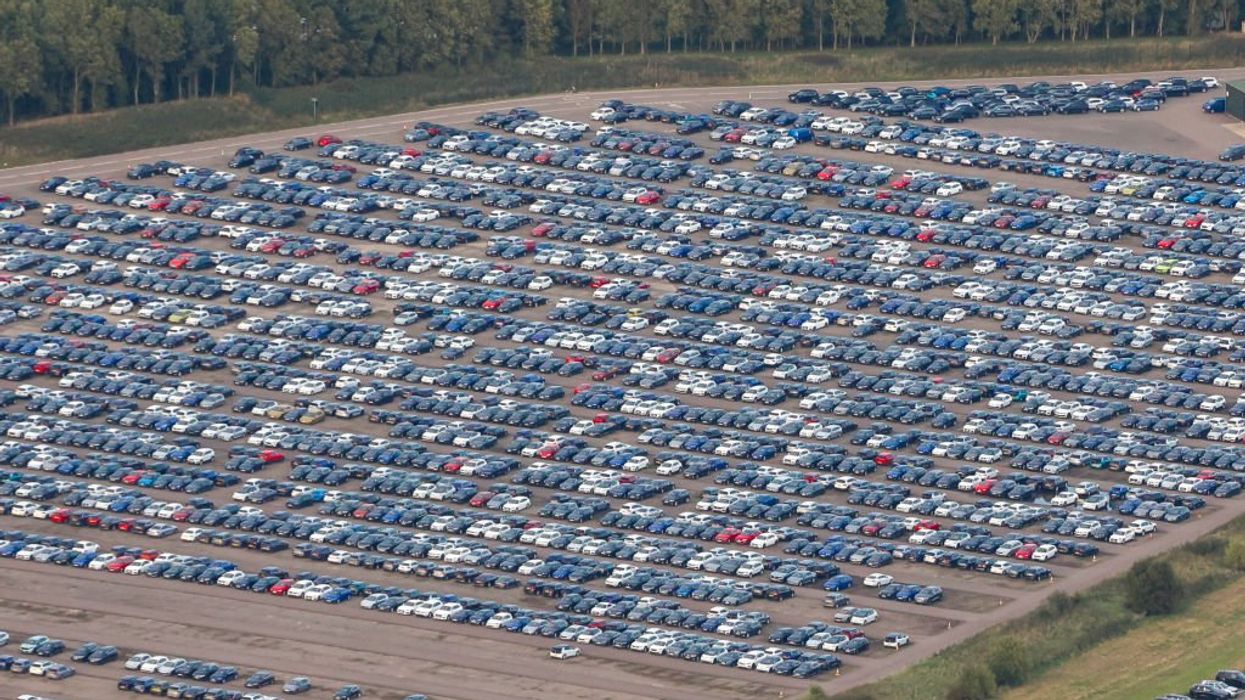
David Goddard/Getty Images

An unprecedented glut in inventory has created the buyers' market to end all buyers' markets.
Unsold inventory has car dealers feeling the pinch — which means there's never been a better time to buy.
Before 2020, it was unusual for a new car to sit on a lot for more than 200 days. Now we're seeing cars not move for 500, 600, and even 700 days — thanks to a combination of car supplies returning to pre-COVID levels and rising prices.
As a dealer trainer for different brands and dealership groups, I've seen the problems excess inventory causes up close — and it's not pretty.
Quite a change from just a few years ago, when many dealerships took advantage of the chip shortage (and the ensuing vehicle scarcity) to charge as much as $15,000 over sticker price.
The tables have turned — and no automaker is exempt. Ford, Honda, Kia, Chevrolet, even Ferrari: You name the brand, and you'll find dealerships stuck with vehicles from 2022, 2023, and even 2024.
With 2025 models arriving, this is a problem.
As a dealer trainer for different brands and dealership groups, I've seen the problems excess inventory causes up close — and it's not pretty.
Car dealers purchase vehicles on a floor plan, essentially a revolving line of credit. This can be interest-free for the first 60 to 90 days. Ideally, you sell within that period. If you don't, rates get pretty high, and it all adds up quickly when you're talking about inventory totaling hundreds of thousands or millions of dollars.
Dealers are highly motivated to get these mobile money pits off of their books. They'll offer incentives (or "spiffs") to the sales team to get them sold. And salespeople will offer potential buyers spiffs of $500 to $1,000.
If that doesn't work, the dealership will often simply pay off the car to relieve the debt. Many times the dealer principals will drive an unsold car for a few years, then sell it at auction for a fraction of the price or even donate it to charity.
Sometimes taking a loss is the smartest business decision — every so often. But 10 or 20 losses are a different story.
Alternatively, the dealership could also use such a car as a demo vehicle or as a loaner car for the service department. Although with this option, rising insurance costs are still a burden.
So what does all this mean for you? In short: big savings.
Remember: Dealers are highly motivated to sell their inventory. Alway ask for the deal — loyalty or conquest discounts could mean between $500 to $2,500, depending on the cost of the vehicle. You can pay less than MSRP on even the most in-demand models, so look around. And don't be afraid to drive out of state to buy — it could mean saving thousands of dollars.
And if you're not picky, look for cars in unpopular colors or trims or older model years. Or consider picking up a demo car or a service loaner.
It's a buyers' market, so negotiate with confidence. And that includes dealer fees — they're not set in stone either.
Lauren Fix